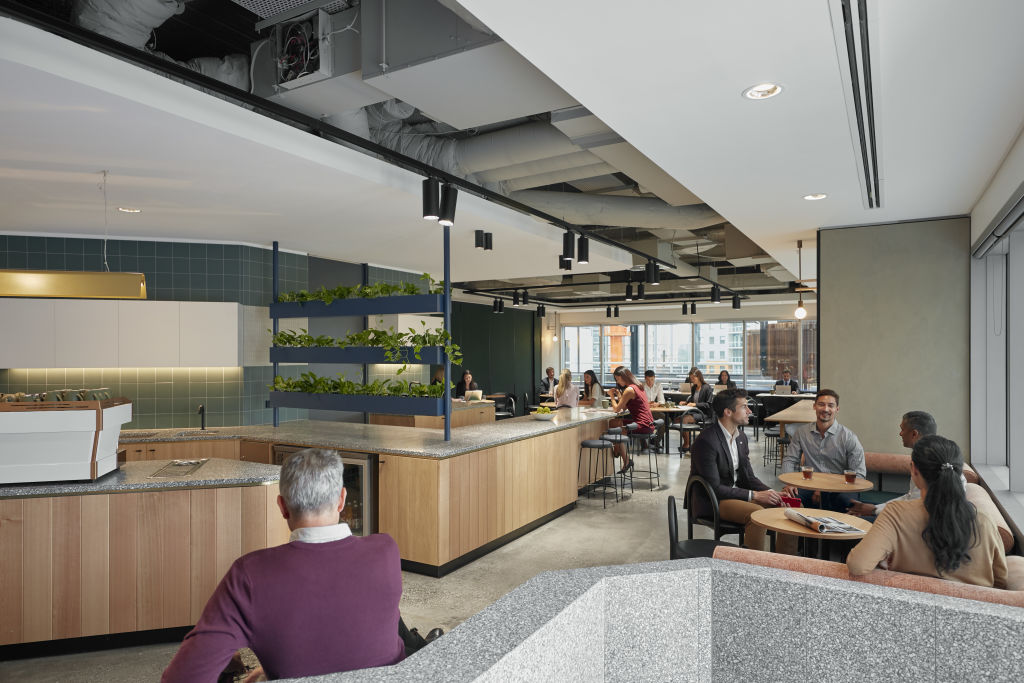
ISPT expands its flexible work space model to Brisbane
One of Australia’s biggest commercial landlords has expanded its flexible work space offering to one of the most improving office markets in the country, as coworking providers continue to gain market traction in locations outside of Sydney and Melbourne.
Unlisted fund ISPT this week expanded its “Flex by ISPT” model to Brisbane – transforming a 647-square-metre space at its A-grade Central Plaza building in the city’s “Golden Triangle” – and detailed plans to launch in Perth and Canberra next year in a bid to retain existing tenants during their expansion phase, or where short-term projects dictate an increase in staff numbers.
The fund – which controls an $18.1 billion portfolio of office, retail, logistics, warehousing and residential property across Australia – already has assets with flexible work spaces in Sydney, at 345 George Street, and Melbourne, 2 Lonsdale Street.
ISPT is keen to differentiate the product from the coworking models offered by major players such as WeWork, although it shares certain characteristics including short-term lease options and flexible office sizes.
The model takes existing space in ISPT offices and converts it into flexible workspaces for teams ranging in size from eight to 250, offered for rent on terms ranging from one to 12 months and exclusively to existing tenants in the ISPT portfolio.
“Flex by ISPT is more than work stations, and offers a completely different solution to coworking models. Our bespoke spaces are designed for our customers and allow them to realise growth opportunities quickly while saving time and money,” said Melinda van der Westhuizen, general manager commercial services at ISPT.
“The spaces include world-class meeting facilities, teamworking spaces, breakout areas, lockers, writeable walls, modular furniture to support constant adaptation and excellent technological infrastructure – everything you would expect to see in a contemporary workplace.”
Ms van der Westhuizen said ISPT had so far seen demand from government and corporate clients in its Sydney and Melbourne offices.
“To date, we have accommodated a range of government departments and companies from the insurance and superannuation industries. In all cases, these customers have very high standards of their accommodation,” she said.
Flexible space currently represents a small amount of ISPT’s portfolio, but Ms van der Westhuizen said the company was planning to expand in the year ahead.
“[It] currently only represents 1 per cent of our sizeable office portfolio in a square meterage sense, but includes 426 workpoints for our customers to support their business needs. The opportunity and demand is there, so we are excited about the potential and continuing to expand our Flex by ISPT strategy in 2020 and beyond.”
The launch comes at a time when the flexible working industry across the eastern seaboard is undergoing rapid expansion as well as facing increasing scrutiny regarding its long-term sustainability, in particular WeWork.
The number of coworking desks in the country is expected to increase by 25 per cent within the next year, with some commentators warning that industry consolidation was on the cards as desk rates continue to dip.
Office Hub founder and chief executive Grant Philipp recently told Commercial Real Estate that he expects that the flexible workspace market, which includes coworking, will see a 25 per cent increase in the number of desks within the next year, “a lot more space than we’ve been predicting”, causing the rates to fall by at least 15 per cent by the third quarter of 2020.
Demand for flexible working strong in Brisbane
Recent data from Colliers International found that Brisbane’s CBD has the biggest proportion of coworking occupancy across Australia – at 2.8 per cent – with coworking operators’ strong take-up of office space driving down the city’s vacancy rate.
Almost 12,000 square metres of office space was taken up by coworking groups in 2018, the most prominent of which was WeWork’s move into a 7700-square-metre space at 192 Ann Street.
Brisbane recorded the biggest fall in vacancy across Australia’s CBD office markets in 2018, declining 3.2 percentage points to 13 per cent, according to Investa, with the flexible workspace sector being a key factor in the tightening market.
“Coworking deals have a significant impact on the reported vacancy rate as they account for pure absorption and aren’t leaving behind any vacant backfill space,” said Kelly Moon, director of office leasing at Colliers International.










